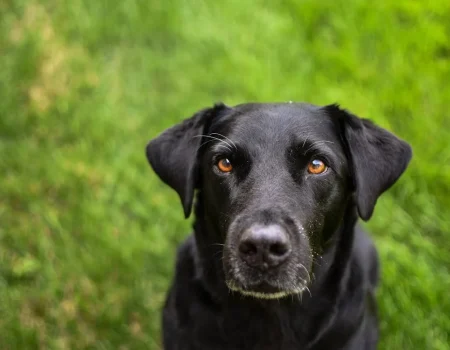Rabbits are small mammals in the family Leporidae of the order Lagomorpha, found in several parts of the world. Rabbits can make great house pets.
They are relatively low-maintenance, quiet, and can be litter box trained. Rabbits are also social creatures and do their best when they live with other rabbits. For many people, rabbits are the perfect pet.
Rabbits are also relatively easy to care for. They need a clean cage or hutch, fresh water and food, and plenty of hay to chew. Rabbits also like to play, so it’s essential to provide them with plenty of toys and things to keep them entertained. They don’t need to walk, and they don’t need a lot of grooming. However, keeping an eye on their diet and ensuring they get all the necessary nutrients is essential.
So ‘can rabbits eat raw red cabbage’? Read on to find out if red cabbage is safe for rabbits, what health benefits it has, what risks it poses, and much more!!
What do Rabbits eat?
Rabbits are herbivores, which means they only eat plants like celery or arugula. A healthy diet for a rabbit includes hay, fresh vegetables, and a tiny number of pellets. Hay is the most important part of a rabbit’s diet, and they should always have access to fresh hay.
Hay is a good source of fibre, which helps retain a rabbit’s digestive system healthy. Hay is a crucial part of a rabbit’s diet and should be available to them at all times.
Fresh vegetables are also an essential part of a rabbit’s diet, just like it is with guinea pigs and hamsters. Rabbits should give a variety of different vegetables to eat. Fresh vegetables should be given to rabbits daily, and pellets should be delivered in small quantities. A vegetable rabbit eats cabbage, carrot, celery, lettuce, broccoli and watercress. Fresh vegetables can be given as a treat, and pellets should be limited to a small handful per day.
Can Rabbits Eat Raw Red Cabbage?
Raw red cabbage is safe for rabbits to eat in moderation. Red cabbage is a good source of vitamins and minerals, and it can also help aid digestion. However, like all vegetables, they should be given in moderation as part of a healthy diet.
A balanced and healthy diet for rabbits must include enough greenery, and cabbage.To ensure your bunny is comfortable.
However, feeding this green in moderation is crucial, as too much might cause flatulence and even diarrhea. Please don’t give it cabbage for numerous days in a row; only offer it a special treat.
Raw red cabbage contains about 2.5 grams of fiber per 100 grams. This high fiber content is beneficial for rabbits as it supports healthy digestion and helps prevent gastrointestinal issues.
Do Rabbits Like Eating Raw Red Cabbage?
Yes, many rabbits enjoy eating raw red cabbage. In essence, cabbage is edible to rabbits, and many of them enjoy its crunchy texture.
The leaves are crunchy and full of nutrients, making them a healthy and delicious treat. However, as with all foods, it is vital to feed cabbage in moderation.
Too much cabbage can cause digestive problems in rabbits, so it should be given as a special treat rather than part of their regular diet. If your rabbit seems to enjoy eating raw red cabbage, you can give it to them as part of a healthy diet. Be sure to treat it in moderation and watch for any digestive issues.
What Kind Of Cabbage Can Rabbits Eat?
There are many types of cabbage that rabbits can eat. Rabbits enjoy all kinds of cabbage, including cavolo nero and savoy cabbage. Spring greens, Bok Choy, and even red cabbages are all fine for your bunny. When feeding cabbage to rabbits, it is essential to remember that they should only have a small amount at a time. Too much cabbage can cause a trouble stomach in rabbits.
Can Rabbits Eat Raw Red Cabbage Leaves?
Raw cabbage leaves are high in Vitamin C, which is needed for healthy health. Rabbits should not consume raw cabbage leaves since they are toxic in large quantities.
When prepared, cabbage can be safely fed to rabbits in moderation. Cooked cabbage is easier to digest and has less of the toxin that causes poisoning.
On the other hand, fresh red cabbage leaves are harmful to rabbits, so always identify the type of cabbage you’re feeding your pet before feeding it.
If you want your rabbit to eat fresh vegetables, steam them for a few minutes before serving to ensure they are safe to consume.
How Much Red Raw Cabbage Should A Rabbit Eat?
A safe amount of red cabbage for rabbits to eat is 1-2 leaves per day. This serving size could increase gradually if the rabbit does not experience any digestive issues. As with all vegetables, red cabbage should be introduced into a rabbit’s diet slowly and in small amounts. If your rabbit seems to enjoy eating raw red cabbage, you can give it to them as part of a healthy diet.
Can Rabbits Eat Raw Red Cabbage Seeds?
No, rabbits should not eat raw red cabbage seeds. Cabbage seeds can be harmful to rabbits if ingested and cause digestive problems. Contact your veterinarian immediately if you feel your rabbit has eaten raw red cabbage seeds.
Health Benefits Of Raw Red Cabbage To Rabbits?
Red cabbage is a healthy vegetable that accommodates essential nutrients for rabbits. This makes it an excellent food to add to a rabbit’s diet. There are many health benefits of raw red cabbage to rabbits. Some of them are the followings:
- Red cabbage is rich in fiber, which helps the rabbit stay regular and aids digestion.
- It also contains vitamins A, C, and K, calcium, and iron.
- This makes it an excellent food to add to a rabbit’s diet.
- Red cabbage can help improve the bunny’s eyesight and help protect against some diseases.
- The antioxidants in red cabbage can also help reduce inflammation throughout the body.
- Red cabbage is a low-calorie food that is high in nutrients, making it an ideal choice for rabbits who are overweight or obese.
- Feeding rabbits red cabbage regularly can help keep them healthy and happy.
Red cabbage has a calcium content of approximately 105 mg per 100 grams. While calcium is essential for rabbits, excessive intake can lead to kidney problems, so it is important to limit high-calcium foods like cabbage in their diet.
Can Rabbits Eat Raw Red Cabbage Without Health Risks?
Yes, rabbits can eat raw red cabbage without health risks. Red cabbage is a healthy vegetable that contains essential nutrients for rabbits.
This makes it an excellent food to add to a rabbit’s diet. Raw red cabbage for rabbits has many health benefits, making it a safe and healthy treat.
However, as with all foods, it is vital to feed cabbage to rabbits in moderation. Too much cabbage can cause digestive issues such as gas and diarrhea. If you suspect your rabbit, This makes it an excellent food to add to a rabbit’s diet and happy.
The Risks Of Cabbage For Rabbits
Cabbage is a healthy vegetable for rabbits but should be fed in moderation. Too much cabbage can cause digestive issues such as gas and diarrhea. Contact your veterinarian immediately if you suspect your rabbit has overeaten cabbage.
Cabbage is healthy for rabbits, but like all foods, it should be given in moderation. Too much cabbage can cause digestive issues such as gas and diarrhea. Contact your veterinarian immediately if you suspect your rabbit has overeaten cabbage.
It is advised to feed rabbits no more than 1-2 tablespoons of red cabbage per 2 pounds of body weight a few times a week to avoid digestive upset and ensure a balanced diet.
Conclusion
Red cabbage is a portion of healthy food for rabbits. It is rich in nutrients and antioxidants, offering many health benefits. However, it is crucial to feed cabbage to rabbits in moderation, as too much can cause digestive issues. Contact your veterinarian immediately if you suspect your rabbit has overeaten cabbage.
For a snack, rabbits love red cabbage. It works well as a supplement to a diet high in the hay. Give them cabbage in moderation twice to three times per week to avoid gas problems. Remember that you can provide other things; it is not the only food.
References
Can Rabbits Eat Red Cabbage – Vet Explains Pets
Can Rabbits Eat Cabbage? – Vet Explains Pets
Can Rabbits Eat Cabbage? Everything you need to know
Can Rabbits Eat Cabbage? Nutritional Facts & FAQ – PangoVet
Can Rabbits Eat Cabbage? Yes, But There Is A Catch!
Disclaimer
This content on Bagrica is for informational purposes only. Consult a professional for pet care or farming advice. Bagrica is not liable for any actions taken based on this information.







No Comment! Be the first one.